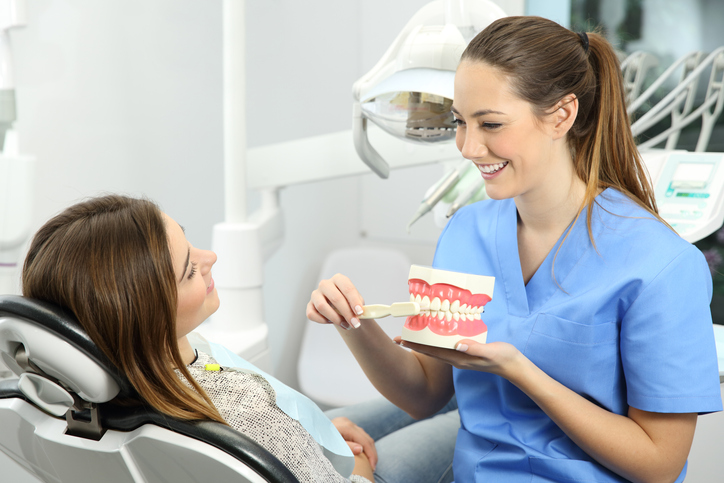Dental Hygiene Fundamentals Explained
Dental Hygiene Fundamentals Explained
Blog Article
Dental hygiene is thought about to be as important as body health. For years, scientists have believed that our teeth can be a true sign of heart problems or early aging. Our teeth will show the first indication when we have bad calcium. It is likewise said that if you have severe tooth discomfort or frequent toothaches, then you could be experiencing the very first indications of angina or a cardiac arrest.
For excellent brushing practices, first make sure you have the right brush. You need one that can reach all over your mouth, and preferably has numerous rows of bristles and a tongue scraper on the back. As soon as you have an excellent, strong brush that effectively cleans your mouth, you will require to ensure you brush at least twice a day for two minutes each time. You need to likewise brush after eating. One good way to ensure you do this is to brush after breakfast, brush after lunch, and brush after dinner. Do not exaggerate it, though; excessive brushing can compromise your tooth enamel.
Many schools are trying to help children with dental health at an early age by offering a dental education for kids. This is a wise idea because children have the ability to learn at a greater rate than grownups. Their minds and bodies are still establishing. This is why school is so crucial to them, and why it can be tough for grownups to return to school in later years. The odds are high that the knowledge will stick with them for many years to come if children find out about Dental Hygiene as early as possible.

A lot of people think Dental Hygiene about visiting the dental practitioner after they start experiencing discomfort triggered by oral health issue. This should not be the case. A lot of dental problems don't trigger any discomfort initially. Because it may be too late to take prevention measures, you should not therefore wait to experience pain to visit your dental practitioner. You need to make a point of visiting your dental expert as suggested above (4 times a year) even if you are not experiencing discomfort or pain caused by an underlying oral health issue or disease.
RDH Deepak Kansal
Registered Dental Hygienist
Hamilton, copyright
Contact: +1 647 961 8919
Email: rdhdeepakkansal@gmail.com
For more information, visit: https://www.deepakkansal.com/
View location: Google Maps
When you're done with all the teeth, focus on the tongue. This harbors a great deal of bacteria too, so you have to make sure that it's as clean as it can be. Brush it gently utilizing a forward-sweeping stroke. Then, do the same to the roofing system of your mouth.
Under this primary umbrella, there are several tasks that a tooth and gum hygienist needs to carry out. Here we have a look at some of the important things that they generally are expected to do.
With a baby that does not have any teeth yet, all we require to do is clean the mouth carefully to clean it. When you kid grows teeth, there's brushing and flossing to look after. Ensure that your child brushes his or her teeth for more than two minutes, and the brush used is personally his or her own. Sharing of a toothbrush is not recommended. As for flossing, this is particularly valuable for kids with damaged or rugged teeth. For the young ones that can't do all the flossing by themselves yet, the parents can floss the back part of their teeth while the kids is finding out how to floss the front.
Flossing daily generally is acceptable for healthy gums and teeth. For best outcomes, attempt flossing after each meal, due to the fact that tartar construct up begins in under 24 hours. Talk with your oral hygienist or dental professional for appropriate tooth brush and floss usage and presentations. Report this page